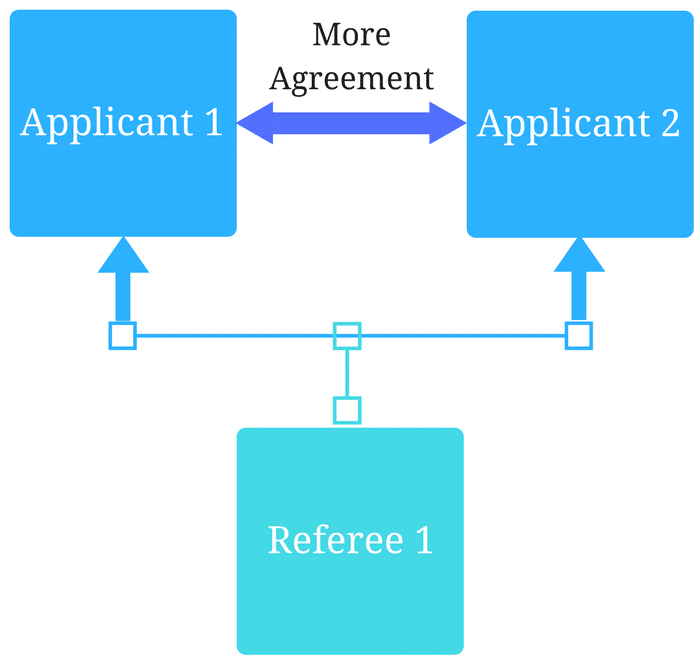The Casper Advantage: A Deeper Dive into Applicant Scores

March 14, 2024
This week on the Holistic Success Show, we welcome Colleen Robb, a research scientist at Acuity Insights. She discusses some exciting new findings from our research team about what a Casper score can reveal about an applicant.
Casper by Acuity Insights has nearly two decades of research and evidence to support its meaningful impact on higher education admissions. The latest research findings further confirm Casper’s value for applicants, advisors, programs, and the communities they engage with.
What is Casper?
Casper is an open-response situational judgment test (SJT) that measures social intelligence and professionalism and is backed by 20 years of data. Research consistently shows that demonstrating practical interpersonal skills contributes significantly to success within academic programs and in future careers.
Casper is designed to be used early in the admissions process to facilitate holistic admissions practices. This way, committee members get an idea of applicants’ personal and professional skills alongside their academic ability right away, allowing them to make initial screening decisions based on more than just academic success.
Academic knowledge is, of course, an important piece during the admissions process. Still, these metrics simply provide one part of a whole – and shouldn’t be the only measure of potential success. There may be applicants who may not have the highest academic scores or grades but may have remarkable personal and professional attributes. Casper can highlight these additional positive qualities early in the admissions process, so that admissions committees can consider a more comprehensive and holistic picture of their applicants when making decisions about who will proceed to the next steps of the admissions process.
Casper’s open-response format
Casper is unlike traditional SJTs. Using an open-response format, Casper offers a unique way for applicants to showcase their social intelligence and professionalism by presenting them with various scenarios and allowing them to draw on their unique life experiences to respond to complex situations. This is unique from most other SJTs, which rely on multiple-choice formats to assess these skills. This approach prioritizes the ‘why’ behind the response, which is equally as important as the ‘what.’
Is there research that supports Casper’s effectiveness?
Over the past two decades, we’ve worked closely with partners and conducted considerable research to ensure the test is reliable and valid for use in the high-stakes environment of higher education admissions. We also work to continuously improve the test. If you’re interested in exploring the research more closely, Acuity Insights routinely publishes peer-reviewed findings and case studies.
As with any assessment used in higher-education admissions, our research traditionally focuses on the quantitative data related to its psychometric properties. These properties encompass crucial aspects such as fairness, reliability, and validity. Understanding these metrics is paramount as they affirm that the test scores accurately capture the construct it aims to measure.
Acuity’s mixed methods study
Recently, Acuity completed a large mixed methods study to provide further insight into the Casper test and its assessment of social intelligence and professionalism, and to complement our rigorous quantitative analyses with equally important qualitative research.
This study aimed to understand what implicit factors raters may be considering in addition to what is outlined in the scoring guidelines.
Our recent study showed that Casper does not only provide a measure of social intelligence and professionalism, but Casper scores can also reveal the extent to which applicants (relative to their peers) can:
- Reflexively use examples to demonstrate key aspects of social intelligence and professionalism
- Understand and interpret social dilemmas in nuanced and complex ways
- Thoughtfully justify their approach to the presented situation
- Provide novel or creative ideas or solutions to the presented situations
- Apply critical thinking to situations that require a professional approach
- Demonstrate sound professional and ethical judgment
- Carefully consider multiple perspectives
What is exciting about these findings is the evidence of the various ways Casper, an open-response SJT, can pick up on both explicit and implicit measures of social intelligence and professionalism. So, not only can a Casper score speak to the aspects it’s designed to measure (e.g., communication, collaboration, etc.), but it also gives insights into more subtle nuances of social intelligence and professionalism, such as the ability to consider multiple perspectives when making a big decision.
How do these findings influence the Casper test?
These findings don’t change Acuity’s recommendations for using Casper. They simply highlight the implicit factors that raters may consider when assessing social intelligence and professionalism.
Casper should still be used in a formula or rubric early in the admissions process alongside academic measures like GPA or scores from academic admissions tests. Casper should be given a meaningful weight in these rubrics or formulas, just as any other admissions criteria would be. By considering Casper scores alongside these other criteria, you can assess multiple dimensions and paint a clearer picture of each applicant.
As this research wraps up, Acuity will focus on publishing a peer-reviewed journal article, giving a detailed overview of the research study, methods, and results. In the meantime, programs that already use Casper can access an overview of these findings by watching this video.
Discover more exciting research findings from Acuity’s research team, and watch the full Holistic Success Show episode!
Related Articles

How interviews could be misleading your admissions...
Most schools consider the interview an important portion of their admissions process, hence a considerable…
Reference letters in academic admissions: useful o...
Because of the lack of innovation, there are often few opportunities to examine current legacy…
